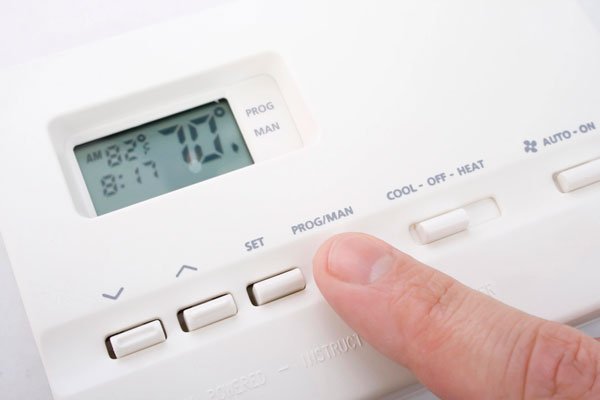1. Seal Air Leaks and Maximize Your Home’s Insulation
To begin, it is crucial to ensure that your home is properly sealed and insulated. This involves meticulously caulking and weatherstripping around windows and doors to effectively prevent any air leaks. Additionally, you may want to consider adding insulation in your attic, walls, and crawl spaces. By doing so, you can significantly enhance your home’s thermal efficiency, ensuring that it retains warmth during colder months and remains cool during hotter months. Moreover, if your windows are outdated, you might also want to explore the option of installing window film or even replacing them entirely. These measures can help minimize heat loss and gain, resulting in a more comfortable and energy-efficient living environment.
2. Tune Up Your HVAC System and Get Regular Maintenance
Regular HVAC maintenance is crucial to keep your system running efficiently and ensure long-term performance. One important aspect is replacing filters monthly to maintain excellent air quality and optimal system functionality. Additionally, it is recommended to have your ducts professionally cleaned and sealed every few years. This helps prevent air leaks, energy wastage, and ensures proper airflow throughout your home. Furthermore, inviting an HVAC professional to check and assess the overall system efficiency can provide valuable insights and help identify any potential issues before they become major problems. Taking these proactive steps will not only prolong the lifespan of your HVAC system but also contribute to a comfortable and energy-efficient home environment.
3. Use a Smart or Programmable Thermostat
Investing in a smart or programmable thermostat can bring about substantial savings in your heating and cooling costs. These innovative devices empower you to set higher temperatures in the summer and lower temperatures in the winter while you’re at home, effectively optimizing energy consumption. Moreover, you can program the thermostat to automatically adjust for energy savings during your sleep hours and when the house is unoccupied, ensuring maximum efficiency and comfort throughout the day. With the added convenience and control, smart thermostats are a wise choice for anyone looking to save money and reduce their environmental impact.
4. Monitor Your Energy Usage
To effectively monitor your energy bills, it’s important to keep a vigilant eye on them month-to-month. By comparing your bills regularly, you can easily identify any anomalies that may arise. Take note of any high-use appliances or peak times of the day when energy consumption tends to spike. Armed with this knowledge, you can make necessary adjustments to your energy usage and reduce those peaks, ultimately leading to greater energy efficiency and cost savings.
5. Consider an Energy Audit
An energy audit can be an excellent way to proactively identify additional opportunities for energy savings in your home. By engaging the expertise of a professional auditor, you can benefit from a comprehensive evaluation of your home and HVAC system. Based on their assessment, they can provide valuable recommendations for improvements tailored to your specific needs, such as the installation of attic fans or radiant barriers. Additionally, they can guide you through the process of applying for rebates on efficiency upgrades, maximizing your potential cost savings while promoting sustainable living. Don’t miss out on this valuable opportunity to increase energy efficiency and reduce your environmental impact!
6. Make Small Behavioral Changes
Finally, a few small behavioral changes can also lead to big energy savings. Make the most of natural sunlight by opening blinds during winter days. Close vents in unused rooms to redirect heated or cooled air. And consider air drying dishes instead of using your dishwasher’s heating cycle. These simple changes, when added up, can make a notable difference in your heating and cooling bills.

